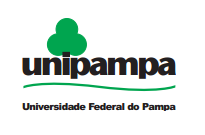The PPGA – UNIPAMPA curriculum components are divided into components of 30 class hours (2 credits) and 60 class hours (4 credits). The total number of credits to be taken by students is 28 (twenty-eight credits), segmented 16 mandatory credits and 12 optional credits in the student research line.
The mandatory credits are:
a) Theory of Organizations (4 credits);
b) Higher Education Methodology (4 credits);
c) Research Methodology (2 credits);
d) Statistical Methods (2 credits);
e) Qualitative Methods (2 credits);
f) Social Interaction Practices (2 credits).
Additionally, the completion of a Teaching Internship with approval is a requirement to obtain the title.
The curricular components are divided and offered in order to enable students to have the option of completing the necessary credits for the master’s degree at the end of the second semester of the course. In this way, the student can dedicate the third and fourth semesters to the elaboration of their dissertation. The expected result is that the completion of the course takes place within a maximum period of 24 months, with academic quality dissertations prepared by students with time dedicated to research. The recommended curriculum structure for both lines of research is presented in Table 1.
Table 1 – Recommended curricular structure for the Masters in Administration.
| Primeiro Semestre | Segundo Semestre | Terceiro Semestre | Quarto Semestre | |
| Estrutura Curricular |
Teoria das Organizações – 60 h Metodologia da Pesquisa – 30 h Métodos Estatísticos – 30 h Optativas (6 créditos) |
Metodologia do Ensino Superior – 60 h
Métodos Qualitativos – 60 h Práticas de Interação Social – 30 h Optativas (6 créditos) |
Elaboração de Dissertação
Estágio de Docência
|
Elaboração de Dissertação
|
It should be noted that the structure can be flexible and students have the opportunity to choose optional subjects more directed to their study interests. For this, the entire semester is offered different curricular components related to research lines. Table 2 presents a list of optional curricular components that can be offered in the lines of Organizations and Development and Strategy and Systems.
Table 2 – Optional Curriculum Components
| Organizações e Desenvolvimento
(créditos) |
|
| Estratégia e Sistemas
(créditos) |
|
| Ambas as linhas de pesquisa
(créditos) |
|


 Português
Português Español
Español